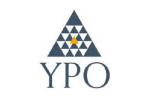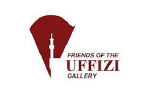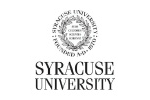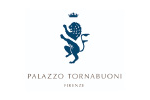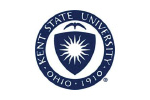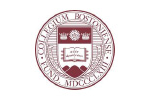





EXCLUSIVE WEBINAR BUNDLE
“Exclusive Webinars in March”
Presented by Dr. Rocky Ruggiero and special guests Dr. Mary Ann Calo, Dr. Laurinda Dixon, Dr. Niall Atkinson and Dr. Paolo Alei
Dates & Times:
Thursday, March 2, 16, 23 & 30
2:00 – 3:00pm ET | 11:00am – 12:00pm PT |
7:00 – 8:00pm London
Wednesday, March 8
2:00 – 3:00pm ET | 11:00am – 12:00pm PT |
7:00 – 8:00pm London (Please note the day change)
EXCLUSIVE WEBINARS | “Exclusive Webinars in March”
Each webinar will include a 45-minute lecture followed by 15-minutes of Q&A.
Please note:
EXCLUSIVE WEBINAR | “Connoisseurship, Criticism and Collecting in the Gilded Age: Remembering Bernard Berenson”
Presented by Dr. Mary Ann Calo
Bernard Berenson is known to many in the field of Italian Renaissance art as an American connoisseur, critic, and aesthetic theorist. Born in Lithuania, Berenson grew up in Boston and entered Harvard in 1884. He departed for Europe following graduation and, after several years of travel, settled in Italy, which became his permanent residence. From 1900 to his death in 1959, Berenson lived on a large estate in Settignano, outside of Florence. At his residence, the Villa I Tatti, with its eclectic art collection, enormous library, and formal gardens, Berenson received the artists, intellectuals, and European dignitaries who composed his vast network of social contacts, as well as the American millionaires who sought his advice in the formation of their personal collections.
Berenson’s early reputation rested on extensive knowledge of the stylistic particulars of Italian Renaissance painting, acquired through years of careful study and maintained through a vast collection of photographic reproductions. [He was a pioneer in using photography to supplement his visual memory.] At his death Berenson gave his estate to Harvard, where it has become a world-renowned research center–Villa I Tatti—Harvard University Center for Italian Renaissance Studies. Along with the property and grounds—Berenson left his personal library consisting of over 50,000 books and 300,000 photos.
EXCLUSIVE WEBINAR | “Condottiero: Summertime Warlords and Wintertime Patrons”
Presented by Dr. Rocky Ruggiero
Much of the history of medieval and Renaissance Italy was determined by mercenary military commanders who hired out their armies to the highest bidders. Yet, when not occupied by war, condottieri exercised their minds by amassing some of Europe’s most impressive libraries and commissioning some of history’s most important works of art. Names like John Hawkwood, Francesco Sforza, Ludovico Gonzaga, Sigismondo Malatesta and Federico da Montefeltro not only fill the annals of Italian geopolitical history, but also the art history books as some of Italy’s greatest patrons of the arts.
EXCLUSIVE WEBINAR | ““How Can This Be Done?” The Miracle of the Annunciation versus the Facts of Life in Renaissance Painting”
Presented by Dr. Laurinda Dixon
The Annunciation, observed on March 25, is the Christian celebration of the announcement by the archangel Gabriel to Mary, the mother of Jesus, that she would conceive and bear a son. The Bible records the event as follows: “And the angel came in and said to her: Hail Mary, full of grace, the Lord is with thee: blessed art thou among women and blessed is the fruit of thy womb.” Confused and afraid, Mary asked, in all innocence “How shall this be done, because I know not man?”
Indeed, how was it done? How did God enter Mary’s body? She was, after all, a virgin, so the usual entryway was closed. These questions challenged Church authorities for centuries, for the facts of life were inarguable. Renaissance painters wrestled with the conundrum, as they visualized the Annunciation in creative ways. Ultimately, artists evolved specific iconographical elements and a new sacred anatomical system, designed to accept the holy spirit and transform it into human flesh.
EXCLUSIVE WEBINAR | “Noise and Silence in Renaissance Florence”
Presented by Dr. Niall Atkinson
This lecture traces the construction of a sonic regime in Renaissance Florence that was based on the casting, placement, and ringing of civic bells. In confronting the formidable but mute power of the defensive towers that dominated the city’s skyline in the late middle ages, successive republican governments confronted these private towers with legislative restrictions while transforming them into a speaking architecture. The new civic bell towers played a crucial, if hitherto neglected role in the struggle to create the Florentine republic, which was the political ground upon which the cultural phenomenon of the Renaissance was founded. In contrast, however, to the more antagonistic urbanistic policies that governments used to combat their enemies, the ringing of civic bells exploited the unifying power of religious bells, a power embedded in their role in uniting people into spiritual communities, to integrate its ideals, laws, and institutions into the soundscape of the city. By addressing four separate stories, this talk will show how noisy and silence in Renaissance Florence was an integral part of the experience of urban space.
EXCLUSIVE WEBINAR | “The Castle of Bracciano: Restoring the Honour of Isabella de Medici and Paolo Giordano Orsini”
Presented by Dr. Paolo Alei
The Castle of Bracciano is one of the biggest private manors in Italy. Built in the 1470s under Napoleone Orsini and his son Gentil Virginio, it was restored in mid-16th century when Paolo Giordano Orsini married the daughter of Cosimo de Medici, Isabella. Although Isabella was never allowed to live for long periods in Rome or Bracciano, her husband commissioned Giacomo del Duca and Annni di Baccio Bigio to restore the edifice and the Zuccari brothers to embellish their private apartment. Isabella died of natural disease in 1576 near Florence but rumors veiled the truth and soon Paolo Giordano was accused of having murdered her. This lecture will shed light on their newly rediscovered letters and try to investigate the truth about the most discussed couple in Renaissance Italy.






